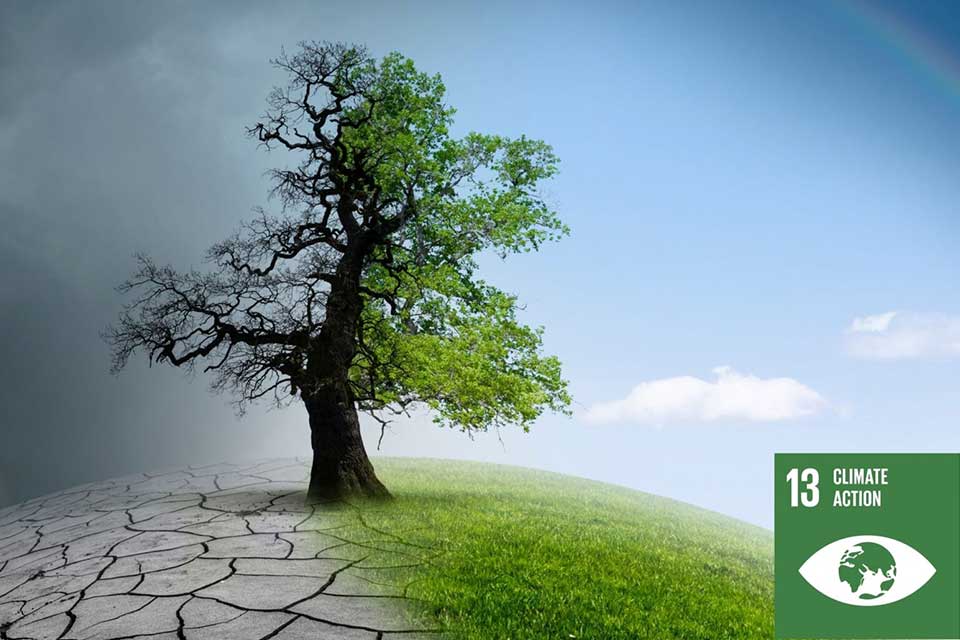The world is thriving by Innovations, Is it thriving our “Mother Nature”?
People are aware that the world is upgrading by technologies. We have to remember our mother Earth is the most precious thing in this Universe. We people have to protect our planet for us and future generations. There are some major points we have to look on as a human being as well as a citizen to protect our nature and save our future.
The revolution of earth:
The world is revolutionary. Currently, the world has just witnessed the third industrial revolution which is known as Digital revolution and currently we are in fourth industrial revolution, which is full of emerging technologies, robotics, artificial intelligence etc. The things that make our life beautiful, easy and affordable are advanced technologies, but we have to think about our environment and the roots that give us this life. The major natural resources are food, water, minerals, forest, air, renewable and non-renewable energy which man can’t live without. Modern inventions are part of this revolution. With technological advancement this also causes negative impacts such as air pollution, water pollution, biodiversity reduction, habitat destruction, greenhouse emission, global warming and climate change.
What should our concern be?
Over exploitation of natural resources, over utilization of water, extraction of minerals, modern uses, alteration of energy causing environmental degradation. Overuses and consumption create pollution, hazards, disaster etc. Environment alteration also causing climate change, global warming, acid rain, ozone layer depletion, nuclear accidents and holocaust. As humans we have contaminated air, water, land and soil by our activities or wastages for a few decades. For example, simply by smoking cigarettes people emits carbon monoxide which can cause chronic disease even death and the people who are smoking are not only affected but non-smokers are also being affected because tobacco industry emit carbon dioxide which cause global warming.
The impact of our lifestyle on nature and lives:
There are different types of pollution that are man-made or creating.
Air pollution is causing alteration in atmospheric layers such as stratosphere which is called “ozone layer depletion”. Ozone layer is expended up to 60 km above Earth surface. Human are using refrigerator, air conditioner which contains CFCs and halon which is not harmful during use but stays for long life span in atmosphere which lead to ozone layer depletion.
At the same time water is the most essential element on earth and human need fresh water but it is polluting by many substances of households, human waste, inorganic plant nutrients, organic chemicals, water soluble radio-active isotopes etc. Different toxic substances pollute water and generate GHG’s which may lead to climate change.
In recent time climate change has become a great concern because of increasing global temperature up to 0.6-0.2°C over the last century. The major cause of rising temperature or global warming is green-house gas emissions. However, human activities like fossil fuel burning like coal, oil, gas, deforestation, industrial activities, manufacturing are the causes of GHG’s like carbon, methane emission and it creates a layer around the Earth that trapped the sun’s heat and increase temperature. The last decade was the warmest ever. Humans are responsible for climate change over the last 200 years. As the temperature is rising glacier is melting and causing sea level rise. Climate change affects in many ways from food scarcity, polluted water to health issues. Seasonal diseases like dengue can spread due to climate change.
Mitigations & measures worldwide:
The world’s temperature is estimated to be increased 1.5°C by 2050. These impacts concern issues which need reformation and the youth along with future leaders are in the position now to create a sustainable society. Sustainability stands for a safe and sound environment for existing and future generations.
To stop ozone layer depletion there was a measure taken in 1992 called “Montreal protocol” which aimed at Controlling the production and consumption of ozone depleting substances.
There is a Technology introduced to prevent water pollution was Root zone process that involves running contaminated water through the root zones of specially designed reed beds
There are 17 sustainable goals and 169 targets are taken by all the country and stakeholders to achieve by 2030. In Bangladesh there are programmatic interventions has been taking by the government. For instance, we can tell about one target that is “Promote adoption of new or improved inputs and technologies to enhance agricultural production, marketing, profitability and decent work opportunities”, which is under 2.3, 2.4, 6.4 targets of SDG and end of this target will be in 2026. By 2050 the world be more advanced in technology and vastly different.
National level policy and plan in Bangladesh for climate change:
World-wide Bangladesh is a climate vulnerable country. Although the contribution of Bangladesh is very negligible in worlds climate change, but it is the region of coastal vulnerability and sea level rise. Sea level rise is the biggest threat for Bangladesh. Satellite data shows sea-level rise in the coastal zone of Bangladesh is 3.8-5.8 mm/year over the last 30 years and 12.34%-17.95% of the coastal area will be submerged due to SLR by this century. For these reasons Bangladesh has policies and projects in national level.
Policy response in Bangladesh at national levels:
Bangladesh Delta Plan, 2100: The plan targets to achieve a safe, climate-resilient and prosperous delta with a mission to ensure long term water and food security, economic growth and environmental sustainability, effectively reducing vulnerability to natural disasters and building resilience to climate change.
National Communication Reports to UNFCCC: Bangladesh submitted First (Initial), Second and Third National Communication in 2002, 2012, and 2018 respectively. According to the Third National Communication of Bangladesh, submitted in 2018, per capita emission from all sectors was 0.98 tons CO2 for the year 2012. Bangladesh has initiated to prepare its First Biennial Update Report (BUR1) to the UNFCCC considering GHG emission inventory for 2013-2019 and updating mitigations options.
GHG Emission Reduction under Montreal Protocol: Bangladesh has successfully implemented required obligation under the Montreal Protocol. More than 2.14 MtCO2 emissions will be reduced by 2025 as per Montreal Protocol targets. Bangladesh ratified the Kigali Amendment on 08 June 2020 and enacted an SRO to reduce import and consumption of HFCs on 18 March 2021 with a view to HFC phasing-down by 2045.
Kyoto Protocol: Bangladesh is among the first 4 countries accepting the 2nd commitment period of the Kyoto Protocol on 13 November 2013.
Paris Agreement: Bangladesh signed the Paris Agreement on the first day of opening for signature on 22 April 2016 and ratified on 21 September 2016.
Role of individual for a Better living world following sustainability and climate change:
- An individual can play significant role from his/her place by dumping waste in a waste management area or reduce, reuse or recycle waste, for example, reduce single use plastic, reusable products supply and use jute bags, carry personal water bottles etc.
- Planting trees as much as possible. Urban people can do rooftop gardening which can help to reduce air pollution.
- Energy conservation such as do not turn on lights, fans if not necessary also use solar energy which is renewable.
- Recycle paper products instead of making new paper that leads to pollution and loss of forest.
- People can advocate green farming, like grows vegetables and fruits in their area that reduce use Pesticides.
- Reduce using products like aerosol, commercial air fresheners can damage ozone layers.
- Use batteries which are rechargeable.
- Eat plant-based food or compost organic waste from food waste.
- Water Conservation such as stop wasting fresh water, dumping waste into water body without protocol.
- Start waste management from individuals, such as throwing waste in a waste management area and dumping biodegradable and non-biodegradable waste differently.
- Do not litter the roads and living area carelessly.
- Support governments who are against pollution and play the role of a citizen.
It needs to be remember that an individual can’t change the world but it creates impact when everyone is aware and doing responsibilities from their place.
Our Planet, Our Choice. It’s us Our Future who can save it.







